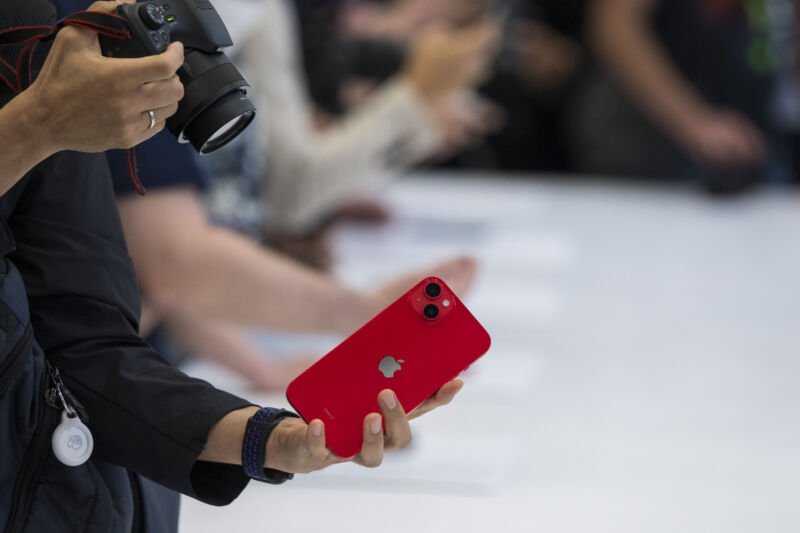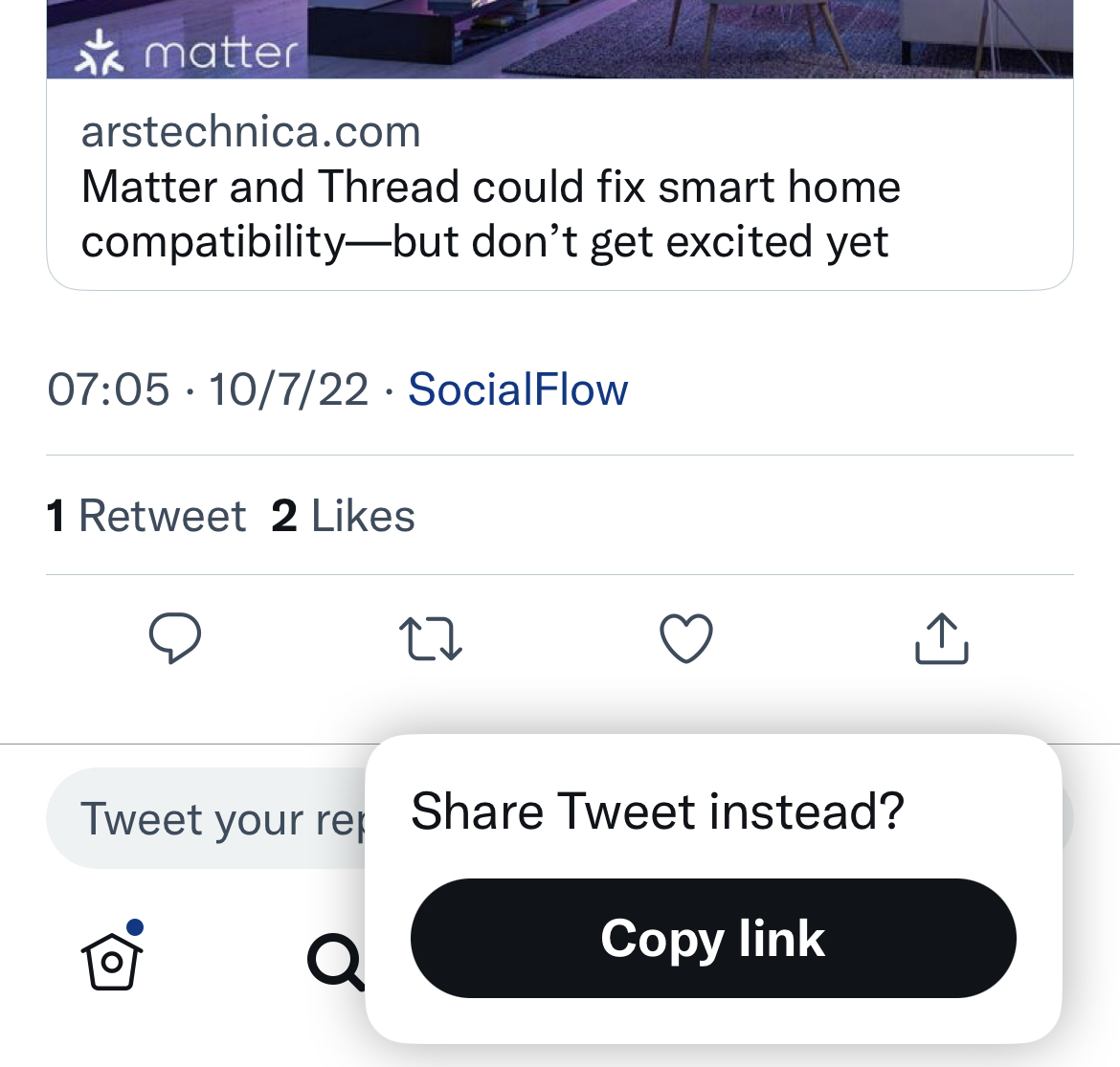
Twitter is seemingly working to remind people that interesting tweets are something you should click, load, and view while logged into the company's ad-funded service, not merely see in a screenshot. That's why some users are seeing a "Share Tweet?" pop-up whenever the Twitter app notices them taking a screenshot.
Social media analyst Matt Navarra noted the two kinds of nudge prompts in a tweet: "Copy link" and "Share Tweet." TechCrunch noted that some of its staff members were receiving the prompt and pointed to another tweet in which Twitter provided both "Copy link" and "Share Tweet" buttons.
As I was writing this, I checked my own Twitter app, took a screenshot of a tweet, and received the "Copy link" version. There's no "dismiss" option, but the pop-up tucks itself away after about seven seconds.

Other Ars staff has seen the "Share Tweet" and double-stacked versions of this prompt.
Twitter makes money when people visit the site in a browser or load it in Twitter's official apps, then see sponsored tweets or pre-roll advertisements on native videos (users can also sign up for a Twitter Blue subscription). Screenshots, whether shared directly or on competing social platforms, don't create revenue. Engaging with Twitter itself could encourage people to sign up and do more of that.
Twitter reported 237.8 million "average monetizable daily active usage" in Q2 2022, up 16.6 percent compared to the same quarter in 2021. The company claims this increase was driven by "ongoing product improvements" and "global conversation around current events." It makes sense why Twitter, the corporate entity, prefers tweet links to screenshots, enough so to A/B/C test a prompt that can make users feel like the Twitter app is both closely watching and scolding them.
But for Twitter, the cultural entity, screenshots are enormously valuable, likely more so than links alone. If you've been engaging in Internet culture for years, you've seen why.
Former President Donald Trump used Twitter as a primary means of making news, announcing policies, and, on occasion, leaving himself open to legislative and judicial action. After the January 6 insurrection, Trump (or his social team) deleted three tweets that led to his suspension from Twitter in the middle of the night. After Trump's Twitter account was banned "due to the risk of further incitement of violence," all of Trump's tweets were essentially deleted. Archives exist, but links to everything the Twitter-minded president had to say on the platform, and embedded versions of those tweets, no longer function.
Screenshots also provide context that a link cannot capture. Tweets with notable like, retweet, quote-tweet, or reply activity and numbers can be captured in the moment with a screenshot, as seen in tweets that have been "ratioed" or in seemingly banal statements that pull in incredible numbers. A reply to a tweet may provide important context, something you can't be sure will show up if you link the reply tweet or if another tweet in the thread is altered or deleted.
And while Twitter's edit button currently shows the revision history of an edited tweet, it can be important to see an original tweet, with its replies at the time, to capture its impact and context.
All of this points to the larger issue: Twitter may not be around forever. And Internet services with user content that can be embedded on websites have a history of disappearing and exporting their brokenness onto the pages that touched them.
This phenomenon is known as link rot. If you've seen a news story that uses since-deleted tweets as a crucial element of proof or discussion, you've seen link rot. Before Twitter hosted its own images, many users relied on third-party services to host them. Twitpic closed down but was bought by Twitter and had its archives restored. Yfrog also didn't make it, and its parent company, ImageShack, used the embedded image space in tweets and other sites to insert unrelated advertisements. Another service, Vidme, eventually foisted "5 Star HD Porn" on sites that relied on its embedded media, including The Washington Post.
When Twitter asks users to rely on their servers instead of finding a home for an image file, the service is suggesting its servers and business are more important than the context you might be trying to capture. For some tweets, that may be an easy trade-off, and it might just point to something users didn't notice before. But Twitter should keep in mind that there are very good, even historical, reasons to ignore buy-in and grab what you see.
Article From & Read More ( Twitter knows you took a screenshot, asks you to share instead - Ars Technica )https://ift.tt/Q7Ey26m
Technology
No comments:
Post a Comment